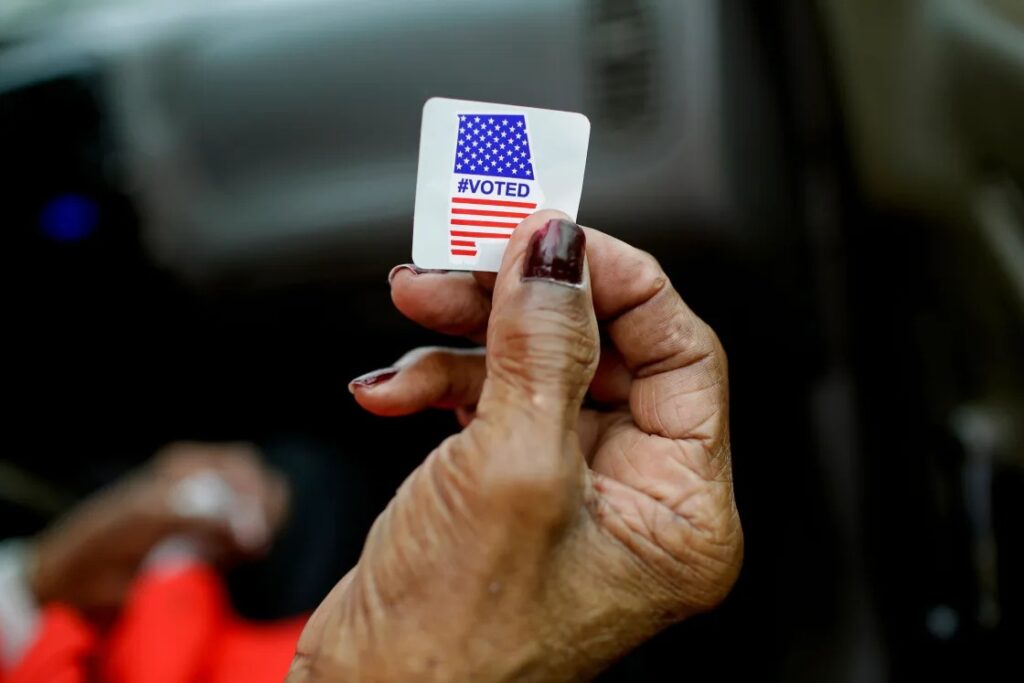Supreme Court rejects Alabama’s bid to use congressional map with just one majority-Black district
The court’s decision is in line with its June ruling in the same case that reaffirmed key protections for minority voters.
By Lawrence Hurley
WASHINGTON — The Supreme Court on Tuesday handed a defeat to Alabama Republicans for the second time in three months, rejecting their latest attempt to use a congressional map that includes only one majority-Black district.
The court in two related applications refused emergency requests from Republican state officials to block lower court rulings that invalidated the new map. Lower court proceedings to approve a new map continue.
The decision was in line with the Supreme Court ruling against the state in June that reaffirmed a key provision of the landmark Voting Rights Act in rejecting the state’s first effort to draw congressional district boundaries.
No dissenting votes were noted, and the court did not explain its reasoning.
“Alabama’s open defiance of the Voting Rights Act stops today,” said Abha Khanna, a lawyer who helped challenge the maps.
She expressed hope that the decision might “prompt Alabama to rethink their dogged resistance to providing equal political opportunities to Black Alabamians.”
Alabama Attorney General Steve Marshall, a Republican, doubled down on the state’s approach, saying in a statement Tuesday that both maps the state has drawn should have been upheld.
“It is now clear that none of the maps proposed by Republican supermajorities had any chance of success. Treating voters as individuals would not do. Instead, our elected representatives and our voters must apparently be reduced to skin color alone,” he said.
The Supreme Court’s earlier ruling forced the state back to the drawing board. But the new map — like the previous one — includes only one district where Black voters are likely to be able to elect a candidate of their choosing. Alabama has seven congressional districts, and 27% of its population is Black.

The new map was thrown out in two different lower court rulings, with the judges saying an additional minority-Black district was required, in line with the Supreme Court’s June ruling.
“We are not aware of any other case in which a state legislature — faced with a federal court order declaring that its electoral plan unlawfully dilutes minority votes and requiring a plan that provides an additional opportunity district — responded with a plan that the state concedes does not provide that district,” one of the court rulings said.
A new map with a second majority-Black district could help Democrats in their bid to win control of the House of Representatives in next year’s election, with Black people in the state more likely to vote Democratic. There are six Republicans and one Democrat in the state’s congressional delegation.
The two consolidated cases arose from litigation over the congressional district map the Republican-controlled Legislature drew after the 2020 census. The challengers, including individual voters and the Alabama State Conference of the NAACP, said the map violated Section 2 of the Voting Rights Act by discriminating against Black voters.
Lower court judges have repeatedly ruled that under existing law plaintiffs had shown that Alabama’s Black population was both large enough and sufficiently compact for there to be a second majority-Black district.
Two conservatives — Chief Justice John Roberts and Justice Brett Kavanaugh — joined the three liberal justices in the majority in the Supreme Court ruling in June.
But the court did leave open future challenges to the law, with Kavanaugh writing in a separate opinion that his vote did not rule out challenges to Section 2 based on whether there is a time when the 1965 law’s authorization of considering race in redistricting is no longer justified.
Marshall seized upon Kavanaugh’s pronouncements in his request to block the lower court rulings.
He also cited the court’s decision in June to end the consideration of race in college admissions as an example of why a remedy for historical race discrimination that may have once been lawful and justified is no longer appropriate.
Lawyers for the challengers argued in court papers that the state had made no effort to draw a second majority-Black district even though it is the only remedy under existing law.
The state “is not entitled … to implement a congressional map that openly defies the clear rulings of the district court and this court,” they wrote.
This piece was republished from NBC News.